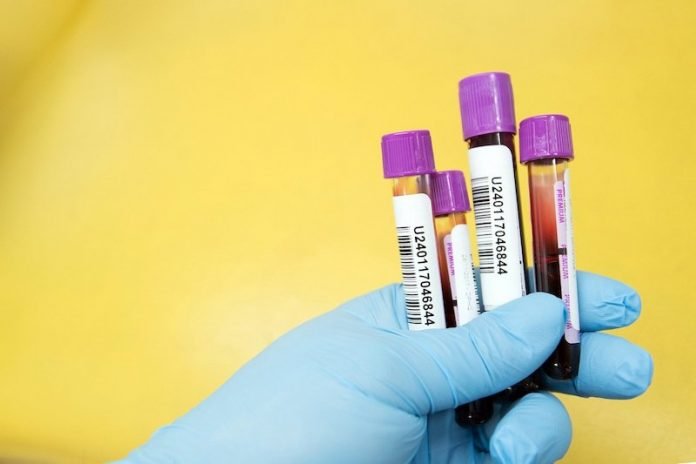
Scientists from the University of Cambridge found that patients who are at a higher risk of their lung cancer returning can be identified by a personalized blood test that is performed after treatment.
They used a personalized blood test for patients, which is a type of liquid biopsy that can pick up tiny fragments of DNA that are released into the blood as tumors grow.
This DNA, called circulating tumor DNA (ctDNA), can reveal the state of the tumor, its location, and potentially its weaknesses, which could be used to select the best treatments.
The research is published in the Annals of Oncology and was conducted by Professor Robert Rintoul et al.
Many patients who are treated for early-stage non-small cell lung cancer can be cured with either surgery, radiotherapy, or sometimes (chemo)radiotherapy.
After treatment, lung cancer patients are carefully followed up with tests including CT scans to find out if the treatment has removed the tumor.
But scans won’t pick up tiny quantities of cancer cells known as a minimal residual disease (MRD) which could still regrow into further tumors.
In the study, the team aimed to find out if circulating DNA can be detected in early-stage lung cancers. They used a liquid biopsy that analyzes up to 48 different mutations that are unique to each patient’s tumor.
The team enrolled 88 patients who were treated for early-stage non-small cell lung cancer. This type of cancer accounts for over 85% of all lung cancer cases.
The liquid biopsies were then used to detect tumor DNA in blood samples collected before treatment, and for up to 9 months after treatment.
The researchers found that patients who had tumor DNA present between two weeks and four months after treatment were much more likely to have their lung cancer come back or to die from it.
Liquid biopsy can be used to detect tiny amounts of residual cancer after treatment, flagging those patients who have signs that their tumor may not have been eradicated completely with treatment.
The team hopes that this technology could help doctors decide when additional rounds of treatment are needed and could save lives.
Lung cancer is the third most common type of cancer in the UK. Every year, around 48,500 people are diagnosed with lung cancer, and every year around 35,100 people die from the disease in the UK.
Sign up for our newsletter for more information about this topic.
If you care about cancer, please read studies about the cause of lung cancer in never smokers, and this less invasive surgery for lung cancer may help people recover fast.
For more information about lung health, please see recent studies about these common drugs may harm your lung health, and results showing keto diet alone may help protect against lung cancer.
Copyright © 2022 Knowridge Science Report. All rights reserved.



